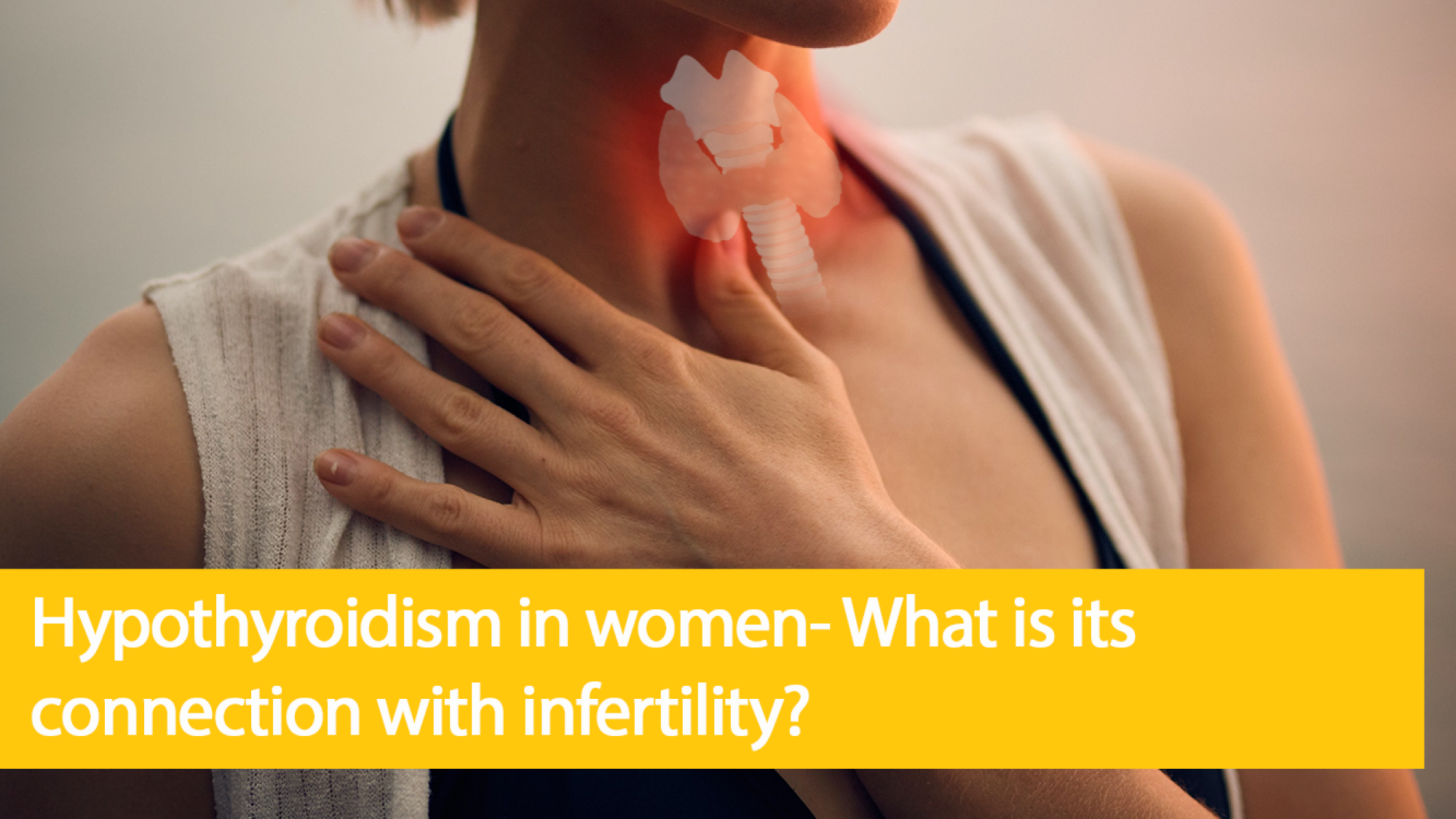Hypothyroidism in women – Meaning:
Hypothyroidism in women, also known as an underactive thyroid is caused when your thyroid gland is not able to produce enough crucial hormones. In the early stages, it is hard to recognise the symptoms but over time it causes many problems like obesity, heart disease or joint pain.Hypothyroidism Symptoms in Female:
Hypothyroidism symptoms in females vary depending on the severity of hormone deficiency. The problems keep increasing with age and become more severe if not recognised. Some common symptoms and signs to watch out for are:- Any sign of fatigue
- Increase in sensitivity to cold
- Constipation
- Weight gain
- Muscle weakness
- Dry skin
- Increased body cholesterol
- Pain, swelling or stiffness in joints
- Hoarseness
- Depression
- Impaired memory
- Enlarged thyroid gland
- Puffy face
- Hairfall
- Slow heart heart
Hypothyroidism in women: Causes
Your thyroid is a small gland that is in the shape of a butterfly below your Adam’s apple, which helps in producing various hormones. These hormones are important for controlling your body temperature, heart rate, etc. When your thyroid gland is not able to produce these hormones, it can affect the balance of chemicals in your body.Some common causes for thyroid problems in women are:
1. Immunity disorder:
Immunity disorder occurs when your immunity system produces antibodies that attack your tissues. This process can sometimes involve your thyroid gland. Any environmental factor or even a person’s gene can be a trigger for producing these antibodies. Due to immunity disorder, your thyroid gland’s ability to produce hormones will get affected.
2. Medications:
Sometimes, the medications you take can contribute to thyroid problems in women. Tablets that are taken to treat psychiatric disorders and can also affect your thyroid glands. Consult your doctor before taking any medicine.
3. Radiation:
Radiation therapy is used to treat head and neck cancer. This radiation can also affect your thyroid glands and can lead to hypothyroidism in women.
4. Thyroid gland surgery:
During any thyroid operation, a portion from your thyroid gland can be removed which can either stop or diminish hormone production. You would have to take thyroid hormone supplements to produce hormones.
5. Response to hyperthyroidism treatment:
Hyperthyroidism occurs when your body produces too many hormones. During the treatment of this through radioactive iodine or anti-thyroid medications, there can be reactions in your thyroid gland. Correcting hyperthyroidism can lower your hormone levels and production of thyroid hormones, resulting in permanent thyroid problems in women.
Thyroid problems in women:
Some effects of hypothyroidism in women are:- Low thyroid hormone can affect menstruation and ovulation in women.
- A low level of thyroid hormone can cause irregular egg release or no egg release, making it difficult to conceive.
- It can cause low basal body temperature and ovarian cyst which can lead to pregnancy loss.
- Infertility as the fertilised egg doesn’t get enough time to attach to the womb.
Symptoms of infertility in women due to hypothyroidism:
Hypothyroidism in women causes an abnormal decrease of hormones in their bodies. This can affect a woman both mentally and physically. Some symptoms of infertility due to hypothyroidism are:- Irregular menstrual cycle: Hypothyroidism symptoms in females also means changes in menstrual cycle dates, causing irregular cycles, PCOS and also heavier cycles than normal.
- Difficulty in conceiving: Since hypothyroidism causes low hormone levels in your body, you can have difficulty conceiving.
- Loss of libido: Abnormal hormone levels may make you lose interest in your sex life.
How to know if you have thyroid problems?
Taking a blood test with your doctor can help you assess the TSH levels in your blood. If your score is between 0.5 to 4.5 you have a normal TSH level. Any score below that means you have hypothyroidism or thyroid. Before self-diagnosing, consult your doctor on further steps to be taken and work on the treatment process if you have any infertility problems.Hypothyroidism diet for women:
Having a nutritional diet can help restore your thyroid gland function and help treat the symptoms. People who have thyroid problems usually have low metabolism, which can be boosted through exercise and maintaining a balanced diet. Having a hypothyroidism diet for women will heal them faster. You can also look at healthy habits that can improve your reproductive health.Women with hypothyroidism can still get pregnant and have their own families. If you are still struggling with infertility problems, you can visit our website to know more about possible treatments like IVF or IUI and get advice from experts in this field.
FAQs on hypothyroidism in women:
1. What food to avoid for hypothyroidism?When having a hypothyroidism diet for women, you don’t need to avoid many foods. Some food you can avoid are
- All kinds of millets
- Highly processed foods like cakes, cookies or hot dogs.
- Supplementary: Taking too much iodine or selenium can cause harm. It is recommended to use supplements as instructed by your doctor.
- Some fruits like peaches, strawberries and pears.
- Soy-based foods like soy milk, tofu, edamame beans, etc.
- Caffeinated beverages such as coffee, green tea. Also, avoid consumption of alcohol as it could irritate your thyroid gland.
Yes, hypothyroidism in women can be cured. Thyroid disease is said to be cured automatically within a few months with medications and diet. In case it is not cured, you have to consult a doctor and get treatment for the same.
3. Can you suddenly develop hypothyroidism?
Usually, autoimmune hypothyroidism can begin suddenly, but most people develop it slowly over the years. Keeping a regular check on your health and noticing symptoms at an early stage can help you cure your thyroid as quickly as possible.
4. Can you self diagnose hypothyroidism?
Although taking self-diagnosis can prove beneficial, it is recommended to take a blood test and consult a doctor. They might check your thyroid hormone level and recommend a thyroid scan, based on your results.
